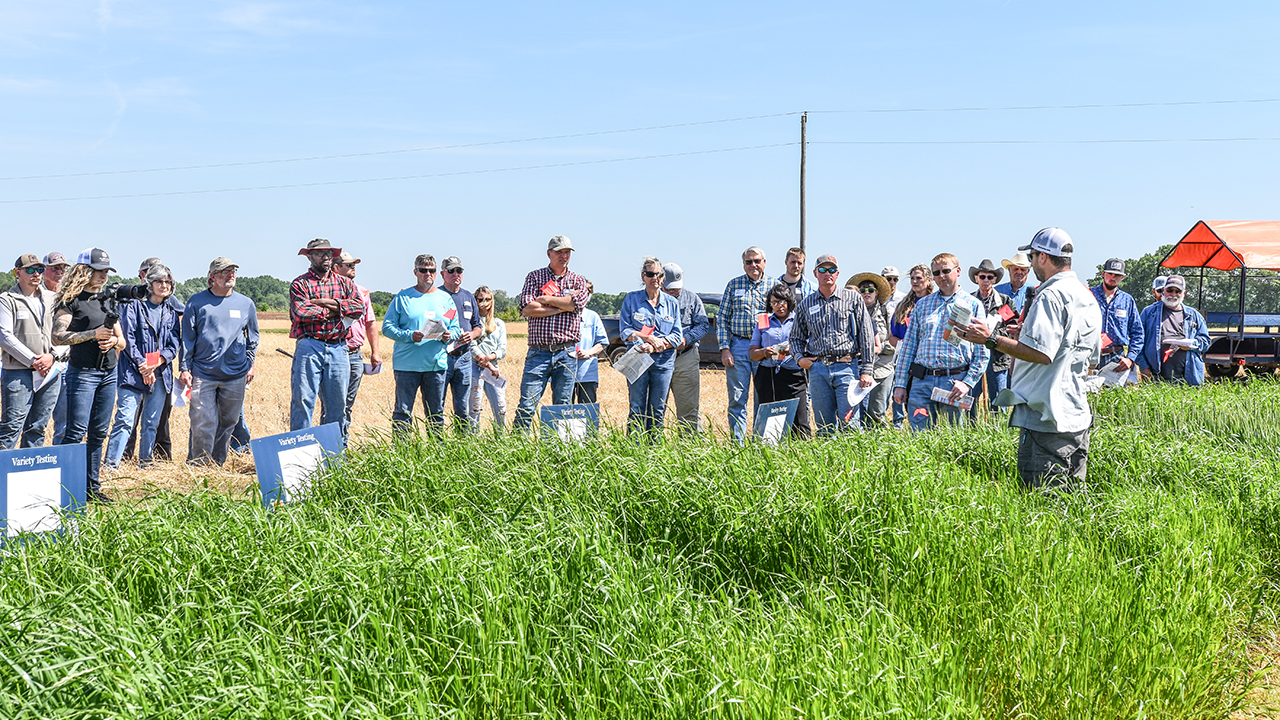Auburn University
Variety Testing Program

Variety selection is the most important decision a farmer can make. If farmers want to be successful, they must ensure that they plant varieties that are well adapted. If a farmer selects the wrong variety, the results can be catastrophic. Typically, farmers do not have the resources to conduct variety trials in addition to their normal growing season activities.
Variety evaluation is also critical to plant breeders, both from universities and industry. Prior to releasing a new variety, these breeders typically evaluate their lines in independent variety trials. This ensures that they have unbiased data from multiple years and locations to support the release of their new variety.
The mission of the Auburn University Variety Testing Program is to provide research-based, unbiased results on the performance of various crop hybrids, cultivars, and varieties to the agricultural community in Alabama. We are intent on conducting these trials in a manner that will result in maximum biological yield through methods common to the top-producing farms in Alabama.
We are committed to providing this information in a timely manner for its use during the decision-making process. The success of the program rests on our ability to help Alabama producers provide a safe, dependable source of food and fiber for all families as well as an economic sustainability for theirs.

Henry Jordan
Variety Testing Manager, Research Associate IV
Subscribe to AU Variety Testing Updates
Annually, the Auburn University Variety Testing Program conducts trials on corn, cotton, soybeans, peanuts, grain sorghum, wheat, barley, oats, triticale, small grain forages, and ryegrass.
Trials are conducted on Auburn University owned and operated agricultural research stations across the major geographical regions of the state. The research conducted at each of these locations can provide stakeholders with data that can be more representative of their growing conditions.
VARIETY CATEGORIES
2026 Soybean OVT Entry Form
January 15 - The 2026 Auburn University Official Soybean Variety Trials (OVTs) entry forms are now available. Entry Forms Due by February 28th. Entries can be submitted in 4 categories (North, Central, South, RKN Screening, Early MG4) Seed Please send seed as...
2026 Peanut OVT Entry Form
January 15 - For the 2026 season, peanuts will be tested in 4 locations for a total of 5 trials. Trials will be planted in 4-row plots and will require 15,000 kernels of seed. Due to space, the number of entries is limited. Entry Forms Please submit as soon...
2026 Grain Sorghum OVT Entry Form
January 15 - The 2025 Auburn University Official Grain Sorghum Variety Trials (OVTs) entry forms are now available. Entry Forms Due by February 28th. Statewide, there are a total of 3 Grain Sorghum OVTs, non-irrigated, planted at 80K seed per acre. Seed Seed...
2026 Cotton OVT Entry Forms
January 15 - The 2025 Auburn University Official Cotton Variety Trials (OVTs) entry forms are now available. Entry Forms Due by March 3rd. Entries can be submitted by category (Full Season, Short Season, Conventional) Statewide, there are a total of 23 OVTs....
Performance of Winter Forages in Alabama, 2025-2026
February 13 Three blended entries were included in several of this year’s ryegrass trials: one 50/50 blend of two ryegrass varieties, and two 50/50 blends combining cereal rye with annual ryegrass. These mixes allow us to compare how variety and species combinations...
2026 Corn OVT Entry Form
January 15 - Please submit corn entry forms ASAP! January 6 - The 2026 Auburn University Official Corn Variety Trials (OVTs) entry forms are now available. Non-BT (refuge) entries are encouraged and will be evaluated at no charge when accompanied by a paying entry....

